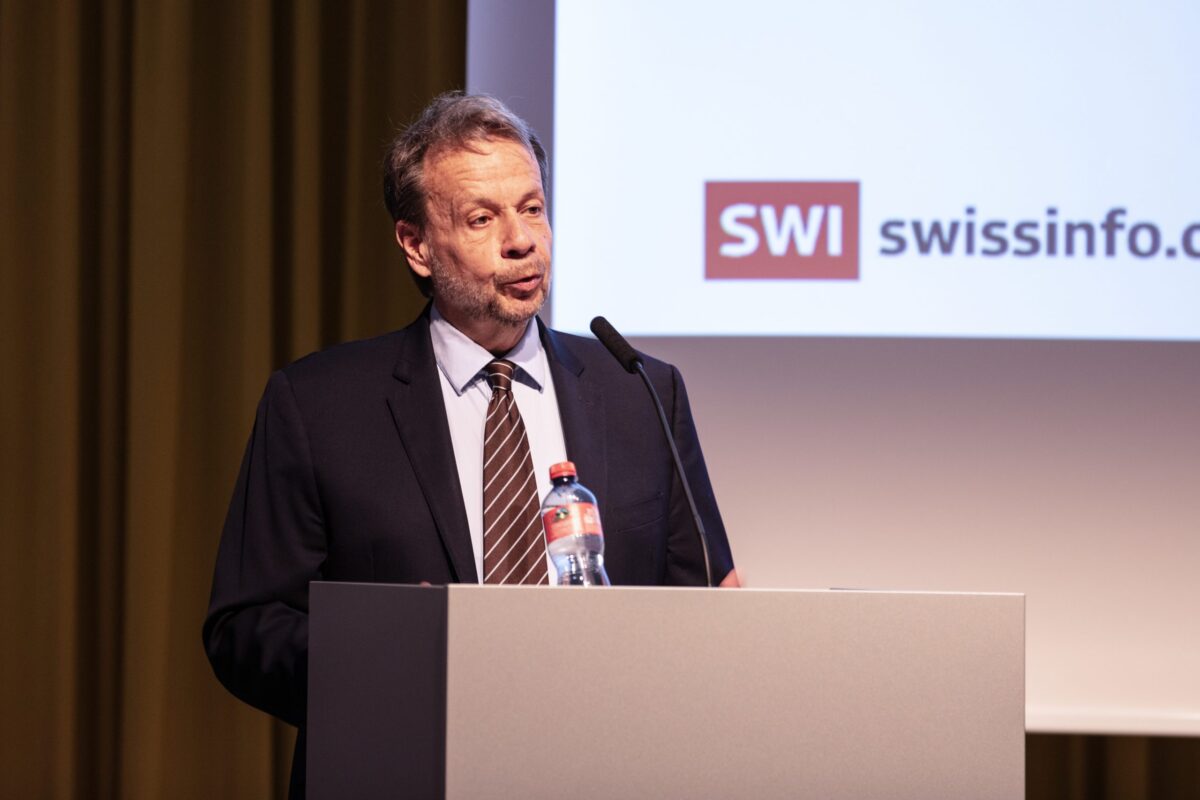
In-Depth Interview on RTS’s #Helvetica (10.02.24)
February 4, 2024
Algorithms, politics and the media
April 16, 2024This speech was delivered at an event organized by SWI swissinfo and its partner GESDA (Geneva Science and Diplomacy Anticipator). SWI swissinfo.ch regularly reports on science diplomacy in its “Science” section. SWI swissinfo.ch also features in GESDA’s news feed, providing a box with links to relevant content for this target audience on swissinfo.ch.
We must first focus on the question of science: its place in audio and video programming, and how to communicate scientific issues to a broad audience.
The SRG editorial teams cover these topics across their different platforms, striving to connect scientific developments with society, new practices, but also with health, the economy, regulation, and ethical questions.
And this is no easy task.
We must try to explain, in an intelligible way, things that are often very complex and share them with the wider public. To do this, it is important to emphasize the consequences and multiple applications, to question science itself, and to demand explanations from it.
This is part of the public broadcaster’s role: to address these themes. Helping the public understand all the stakes tied to scientific developments is a true public value. SWI’s weekly science newsletter, focused on research, offers a uniquely Swiss perspective in this field and is a good example.
In total, SRG’s editorial teams include around fifty journalists specializing in scientific topics. They contribute to daily news editions as well as to dedicated formats, both broadcast and digital.
The second dimension is openness to the world and to more geopolitical questions. Here too, SRG is deeply engaged. Switzerland needs to understand its international environment, but also to explain itself—its choices and its agenda—on the world stage.
For this, we have developed an extensive network of correspondents across the globe. This network of professionals reports on what they observe for our German-, French- and Italian-speaking newsrooms. Being on the ground is vital: to bear witness, to verify, to source information—as we say in the professional jargon.
As the use of AI in media production grows exponentially, I believe it is more important than ever to nurture trust and fact-checking.
SRG’s international mandate is also part of this global dimension. This mandate, entrusted to us by the Swiss Confederation and co-financed on a 50/50 basis, enables the existence of our international platform swissinfo.ch, available in 10 languages.
It also ensures the presence of RTS programming, particularly its TV news, on TV5Monde—the Francophone channel reaching 400 million households across all continents.
And through 3sat, this mandate facilitates collaboration between SRF and the German-language channels ARD, ZDF, and ORF. Not to mention the platform serving Italian-speaking communities around the world, tvsizzera.it.
Together, these initiatives give Switzerland great visibility and immense reach. We tell the world’s stories to Switzerland, and we explain Switzerland to the world. This helps bring different perspectives closer together.
This is also GESDA’s intention: scientific diplomacy, knowledge diplomacy, foresight, as well as networking and mediation—essential values for a small country that must play its part in the global concert.
Two examples are particularly relevant here.
First, SRG’s highly active presence at the heart of international Geneva.
This includes strong journalistic collaboration between public broadcasters within the EBU/Eurovision network. One example is the “Seen from Europe” section on SWI swissinfo.ch, which offers real-time access to European news provided by public service media in the EBU, with excellent language adaptations.
The second example is the construction of our new audiovisual production center on the EPFL campus in Lausanne. This promising space will bring journalists and scientists together on a daily basis. The two institutions have already formalized their joint commitment to better serve the Swiss public in education, research and innovation through the signing of a collaboration charter.
Science, openness to the world, and journalism: we are truly at the heart of these challenges.


